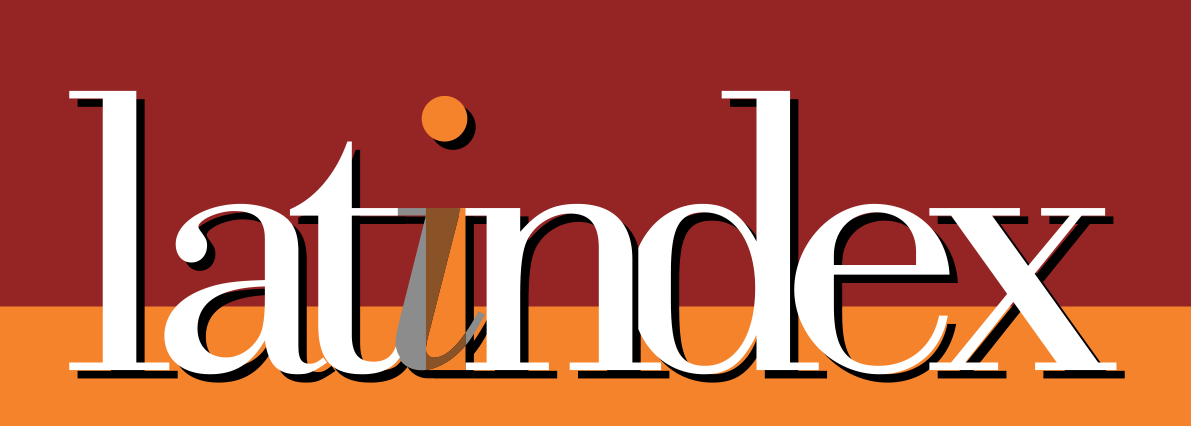LIBERDADE DE EXPRESSÃO E O DISCURSO DE ÓDIO: UMA ANÁLISE ACERCA DO RELATIVISMO MORAL NO BRASIL
DOI:
https://doi.org/10.63835/83vdqs71Palavras-chave:
Democracia, Discurso de ódio, Liberdade de expressão, Relativismo moralResumo
O presente artigo pretende investigar a relação complexa entre a liberdade de expressão e o discurso de ódio no contexto brasileiro, explorando como a relativização dessas questões afetam a sociedade e de que maneira é possível equilibrar a proteção da liberdade com a prevenção à intolerância. Desse modo, inicia-se o trabalho contextualizando a importância da liberdade de expressão como um pilar fundamental da democracia, destacando sua proteção constitucional no Brasil. Entretanto, a complexidade surge quando confrontada com manifestações de discurso de ódio, que têm o poder de prejudicar a coesão social e incitar a discriminação. A análise detalhada desses conceitos e sua relação intrínseca proporcionam uma compreensão aprofundada dos desafios éticos e morais subjacentes sob a perspectiva do relativismo moral. Quanto a metodologia utilizada na pesquisa, tratou-se do método dedutivo permitindo uma análise das complexidades subjacentes às interações entre liberdade de expressão e o discurso de ódio à luz do relativismo moral, através da análise das obras de Hans Kelsen e Miguel Reale. Por fim, infere-se que para alcançar um equilíbrio sustentável entre a liberdade de expressão e a prevenção do discurso de ódio, é fundamental considerar a complexidade do relativismo moral presente no contexto brasileiro para a promoção de uma abordagem inclusiva que respeite as diferentes perspectivas da coletividade.
Downloads
Referências
ARENDT, Hannah. A Condição Humana. 11ª ed. Tradução: Roberto Raposo. Rio de Janeiro: Forense Universitária, 2010.
ARENDT, Hannah. Origens do Totalitarismo – Antissemitismo, Imperialismo, Totalitarismo. Trad. Roberto Raposo. São Paulo: Companhia das Letras, 1989.
BEZERRA, Juliana. Liberdade de Expressão. Toda Matéria, [s.d.]. Disponível em: https://www.todamateria.com.br/liberdade-de-expressao/. Acesso em: 23 out. 2023.
BONAVIDES, Paulo. Do Estado Liberal ao Estado Social. 7. ed. São Paulo: Malheiros, 2004.
BRASIL. [Constituição (1988)]. Constituição da República Federativa do Brasil. Brasília, DF: Senado Federal, 2016. 496 p. Disponível em: https://www2.senado.leg.br/bdsf/bitstream/handle/id/518231/CF88_Livro_EC91_216.pdf. Acesso em: 28 nov. 2024.
BRASIL. Supremo Tribunal Federal. AP 1.044, Rel. Min. Alexandre de Moraes. Julgado em 20/4/2022. DJE 23-6-2022 Disponível em: https://www.stf.jus.br/arquivo/cms/noticiaNoticiaStf/anexo/AP1044ementa.pdf. Acesso em: 23/11/2024.
BRASIL. Supremo Tribunal Federal (STF). Liberdade de expressão. Supremo Contemporâneo, Brasília, eBook (375 p.). Disponível em: https://www.stf.jus.br/arquivo/cms/publicacaoPublicacaoTematica/anexo/liberdadeexpressao.pdf. Acesso em 24 nov. 2024.
BRASIL. Tribunal Regional Federal (3ª Região). Recurso de Apelação. Processo nº 0008725-44.2017.4.03.6181. Penal. Juizado Especial Federal. Apelação Criminal. Artigo 140 do Código Penal. Injúria. Nulidade por Inobservância do Contraditório. Oitiva da Ofendida sem a Presença da Defesa do Acusado. Preliminar Acolhida. Recorrente: Danilo Gentili Junior. Recorrido: Maria do Rosário. Relator: Juiz Federal Uilton Reina Cecato, 06 de abril de 2021. Disponível em: https://www.jusbrasil.com.br/processos/159288177/processo-n-000XXXX-4420174036181-do-trf-3. Acesso em 22 nov. 2024.
DISCURSO de ódio: ascensão da extrema-direita e práticas discursivas. Instituto Aurora. Disponível em: https://institutoaurora.org/discurso-de-odio/#:~:text=Esses%20discursos%20de%20%C3%B3dio%20podem,%C3%B3dio%20contra%20tais%20grupos%20minorit%C3%A1rios. Acesso em: 22 out. 2024.
GUERCIO, Cilene Rebelo Nogueira; MATHEUS, Rosemeire Solidade da Silva; NASPOLINI, Samyra Haydêe Dal Farra. A internet e o discurso de ódio: uma análise teórico-social. 2021. Revista de Sociologia, Antropologia e Cultura Jurídica.
HOBBES DE MALMESBURY, Thomas. O Leviatã - a liberdade, por Thomas Hobbes, 2012. Disponível em http://blog-do-william-mendes.blogspot.com.br/2012/05/o-leviata-liberdade-por-thomas-hobbes.html. Acesso em: 28 out. 2024.
JÚNIOR, M. R. Filosofia do Direito. 20. ed. São Paulo: Saraiva, 2022. E-book. Disponível em: https://bibliotecadigital.saraivaeducacao.com.br/epub/600232?title=FILOSOFIA%20DO%20DIREITO. Acesso em 25 out. 2024.
JÚNIOR, Raimundo Freires de Sousa. O direito constitucional e fundamental da liberdade de consciência e de crença e os valores da fé cristã na formação do estudante de direito. 2020. 52 f. Monografia (Direito Constitucional) – Faculdade Luciano Feijão, Sobral, Ceará, 2020.
KELSEN, Hans, Essência e valor da democracia. In: KELSEN, Hans. A democracia. 2. ed. São Paulo: Martins Fontes, 2000a.
KELSEN, Hans. Teoria Pura do Direito. Tradução de João Baptista Machado. São Paulo: Martins Forense, 1999.
MUNANGA, Kabengele. Educação e diversidade cultural. Cadernos Penesb: Discussões Sobre O Negro Na Contemporaneidade E Suas Demandas, Rio de Janeiro, vol. 10, janeiro/junho 2008/2010, p. 37 - 54, junho, 2010. Disponível em: https://pdi.sites.uff.br/wp-content/uploads/sites/573/2019/02/PENESB-10.pdf#page=37. Acesso em: 25 nov. 2024.
OLIVEIRA JÚNIOR, Claudomiro Batista. Afirmação histórica e jurídica da liberdade de expressão. In: Congresso Nacional do CONPEDI, 17., 2008. Porto Alegre. Anais [...] Porto Alegre: Conpedi, 2008.
OLIVEIRA, Marco Aurélio Caetano. Relativismo Moral. Info Escola, 2018. Disponível em: <https://www.infoescola.com/filosofia/relativismo-moral/>. Acesso em 29 out. 2024.
ONU - Organização das Nações Unidas. Declaração Universal dos Direitos Humanos da ONU. Disponível em: https://www.oas.org/dil/port/1948%20Declara%C3%A7%C3%A3o%20Universal%20dos0%2Direitos%20Humanos.pdf. Acesso em: 05 nov. 2023.
SILVA, José Afonso. Curso de Direito Constitucional positivo. 37ª.ed. São Paulo: Malheiros, 2014.
SILVA, Maria José Albuquerque, BRANDIM, Maria Rejane Lima. Multiculturalismo e Educação: em defesa da diversidade cultural. Diversa. Ano I, nº 1, p. 51-56, jan/jun. 2008.
Downloads
Publicado
Edição
Seção
Licença
Copyright (c) 2025 Dr. Flávio Maria Leite Pinheiro, Ma. Ana Paula Marques Timbó Braga, Adv. Fhilippe Robert de Lima Freires (Autor)

Este trabalho está licenciado sob uma licença Creative Commons Attribution 4.0 International License.
A Revista Juris Verdi utiliza a licença Creative Commons Attribution 4.0 International (CC-BY 4.0), que permite o compartilhamento e a adaptação do material para qualquer finalidade, inclusive comercial, desde que seja atribuída a devida autoria ao(s) autor(es). Os autores retêm os direitos de publicação sem restrições, e os artigos permanecem disponíveis em acesso aberto.
Declaração de Direitos Autorais
Os autores do manuscrito abaixo identificado declaram que:
-
Concordam com a submissão do artigo à revista Juris Verdi
-
Declaram que o trabalho é original, que não infringe direitos autorais de terceiros e que não foi publicado, nem está sendo avaliado para publicação em outro periódico;
-
Autorizam, em caso de aceite, a publicação do artigo sob a licença Creative Commons Atribuição 4.0 Internacional (CC-BY 4.0), que permite o uso, compartilhamento, adaptação, distribuição e reprodução em qualquer meio ou formato, desde que seja atribuída a devida autoria ao(s) autor(es);
-
Reconhecem que os direitos autorais permanecem com os autores, que podem, inclusive, depositar o artigo em repositórios institucionais, sites pessoais ou redes sociais acadêmicas, desde que mantida a referência à publicação original na revista;
-
Estão cientes de que a Revista Juris Verdi adota a política de acesso aberto, comprometida com a democratização do conhecimento científico.










